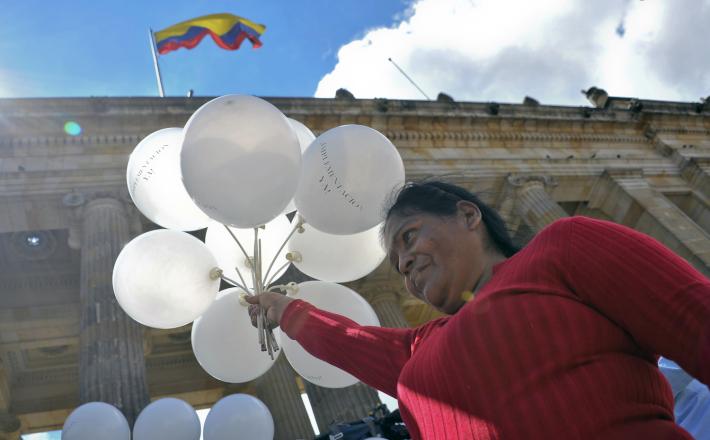Women are the key to peace
Source: Foreign Police
By Melanne Verveer, Anjali Dayal.
Conflict rocked more countries in 2016 than at any other time in nearly 30 years. The upswell in violence led U.N. Secretary-General António Guterres to call for a “surge in diplomacy for peace.” Part of that effort, he has advised, should be increasing the number of women mediators—and finding more ways to engage female civil society leaders—in peace processes. Our new research from Georgetown University confirms the wisdom of Guterres’s approach: Talks are more effective when women are involved.
To date, women are vastly underrepresented in formal peace negotiations, where they make up only 2 percent of mediators, 5 percent of witnesses and signatories, and 8 percent of negotiators. When belligerents sit down to bargain an end to a war, in other words, women are still overwhelmingly shut out.
That’s a major problem. Beyond the fact that women deserve an equal hand in shaping their societies, it is also true that their participation leads to better outcomes. Studies find that when civil society groups and women’s groups are included in negotiations, resulting peace agreements are 35 percent more likely to last at least 15 years. That is huge, considering that settlements break down more often than not. A more gender-balanced process enhances local trust and buy-in, injects legitimacy into the process, and increases the chances that problematic social norms and power imbalances that contributed to the conflict will be rectified.
Click here to read the full article published by Foreign Police on 8 November 2018.

By Melanne Verveer, Anjali Dayal.
Conflict rocked more countries in 2016 than at any other time in nearly 30 years. The upswell in violence led U.N. Secretary-General António Guterres to call for a “surge in diplomacy for peace.” Part of that effort, he has advised, should be increasing the number of women mediators—and finding more ways to engage female civil society leaders—in peace processes. Our new research from Georgetown University confirms the wisdom of Guterres’s approach: Talks are more effective when women are involved.
To date, women are vastly underrepresented in formal peace negotiations, where they make up only 2 percent of mediators, 5 percent of witnesses and signatories, and 8 percent of negotiators. When belligerents sit down to bargain an end to a war, in other words, women are still overwhelmingly shut out.
That’s a major problem. Beyond the fact that women deserve an equal hand in shaping their societies, it is also true that their participation leads to better outcomes. Studies find that when civil society groups and women’s groups are included in negotiations, resulting peace agreements are 35 percent more likely to last at least 15 years. That is huge, considering that settlements break down more often than not. A more gender-balanced process enhances local trust and buy-in, injects legitimacy into the process, and increases the chances that problematic social norms and power imbalances that contributed to the conflict will be rectified.
Click here to read the full article published by Foreign Police on 8 November 2018.